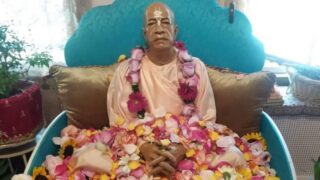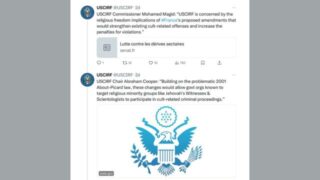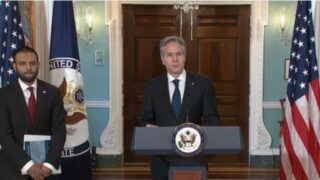The African American movement, also known as Nation of Gods and Earth, has consistently claimed it is not religious. Courts, however, have protected it as a religion.
by Massimo Introvigne


On December 13, 2023, the U.S. 4th Circuit Court of Appeals ruled in the case “Greene v. Lassiter” that a group can be considered a religion for legal purposes based on an analysis by the court even if it denies being religious.
The case involved the Nation of Gods and Earth, the name that the group better known as the Five-Percent Nation now prefers to use, as it in fact did from its early years. The movement was founded in 1964 in Harlem by Clarence Edward Smith (1928–1969), called by his followers Clarence 13X. Smith was a former member of the Nation of Islam (NoI), and the name “Five-Percent” came from the NoI teaching that only five out of every hundred humans know the fundamental truth of history. This truth is that ten percent of humanity, representing an evil elite, keeps eighty-five percent of humans in a state of ignorance, from which only the enlightened five percent is able to escape.
Smith also believed that ninety-five percent of NoI members were not enlightened, a status reserved for the five percent of former NoI devotees who eventually joined his movement. The conflict with NoI might have caused the attempts to kill Smith until the final successful one in 1969, although his group was also kept under surveillance by the FBI and who exactly assassinated him remains unknown.
Through numerology and gematria, Smith believed he could prove that the five percent is mostly composed of Black men (women have an ancillary position) who have an inherently divine nature. He referred to himself as “Allah” and a divine incarnation but taught that all his (male) followers were gods. For this very reason, he insisted that the Five-Percent Nation was not a religion. He taught that religions worship external gods while the god of the Five Percenters is inside themselves. He gradually removed from his group the Islamic trappings that came from his time in the NoI, although some Islamic references remained.


Today Five Percenters, who do not have a single leadership after Smith’s death, are mostly known for their influence on hip-hop music. The case decided by the 4th Circuit considered again the question of whether they are a religious movement. A Five Percenter who is an inmate in a North Carolina state prison called Corey Delon Greene sued the state’s prison administration asking for the right to practice his “religion” in jail under the First Amendment and the Religious Land Use and Institutionalized Persons Act (RLUIPA).
At some stage during the proceedings, Greene amended its complaint to specify that the Nation of Gods and Earth (aka Five-Percent Nation) “is a God centered culture that must not be misconstrued as religion. This is a central tenet to the culture.” The district court interpreted this statement as a binding judicial admission that the plaintiff did not belong to a “religion,” which foreclosed relief under RLUIPA and the First Amendment.


The inmate appealed and the 4th Circuit ruled that “the district court erred in construing Greene’s pro se statement as a relief-foreclosing judicial admission. Greene’s statement wasn’t an ‘intentional and unambiguous waiver that released the opposing party from its burden to prove the facts necessary to establish the waived conclusion of law’ [Minter v. Wells Fargo Bank, N.A., 762 F.3d 339, 347 (4th Cir. 2014)]. To the contrary, Greene has consistently maintained that he asserts rights under RLUIPA and the First Amendment for being denied the ability to practice his faith or belief system, even if NGE [the Nation of Gods and Earth] eschews the label of ‘religion.’ And in RLUIPA, Congress defined ‘religious exercise’ capaciously and ‘mandated that this concept ‘shall be construed in favor of a broad protection of religious exercise.’” The court also quoted two precedents where the Nation of Gods and Earth was recognized as a religion despite denying being one.
Just as claiming to be a religion is not enough to be recognized as one in court, denying its own religious nature does not prevent American judges from acknowledging it.









